
「Arigatou gozaimasu」ありがとうございます in Standard Dialect. Japanese Pitch Accent 04 How to say ? YouTube
Keduanya memiliki arti yang sama. Perbedaannya, arigatou gozaimasu merupakan bentuk formal yang diucapkan saat ingin menyatakan rasa terima kasih. Namun, apabila ingin mengungkapkan terima kasih dalam bentuk lampau, kata yang tepat adalah arigatou gozaimashita ありがとうございました。
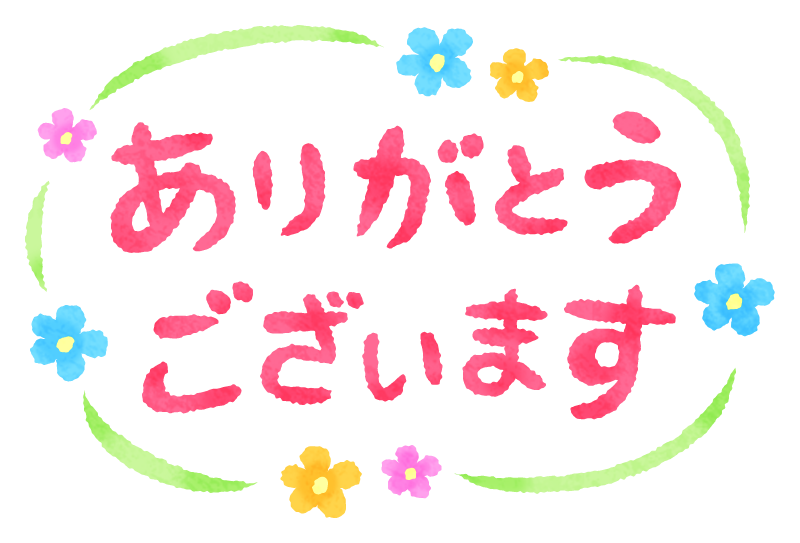
Arigato Gozaimasu
Arigatou Gozaimasu Artinya Apa? Arigatou gozaimasu berarti "terima kasih". Kata ini merupakan versi formal dari arigatou yang memiliki arti sama. Arigatou gozaimasu digunakan untuk berterima kasih kepada orang asing, orang yang lebih tua, atau orang dengan jabatan yang lebih tinggi. Arigatou gozaimasu tergolong sopan dan formal.

QUAL A DIFERENÇA ENTRE "ARIGATOU GOZAIMASU VS ARIGATOU GOZAIMASHITA? YouTube
The Basic 'Thank You' in Japanese: Arigatou. 'Arigatou' (ありがとう) is the most basic and widely recognized way to say 'thank you' in Japanese. This phrase is your go-to expression of gratitude suitable for a vast array of situations. It is versatile and can be used in both formal and informal contexts, showing appreciation for a favor, a.
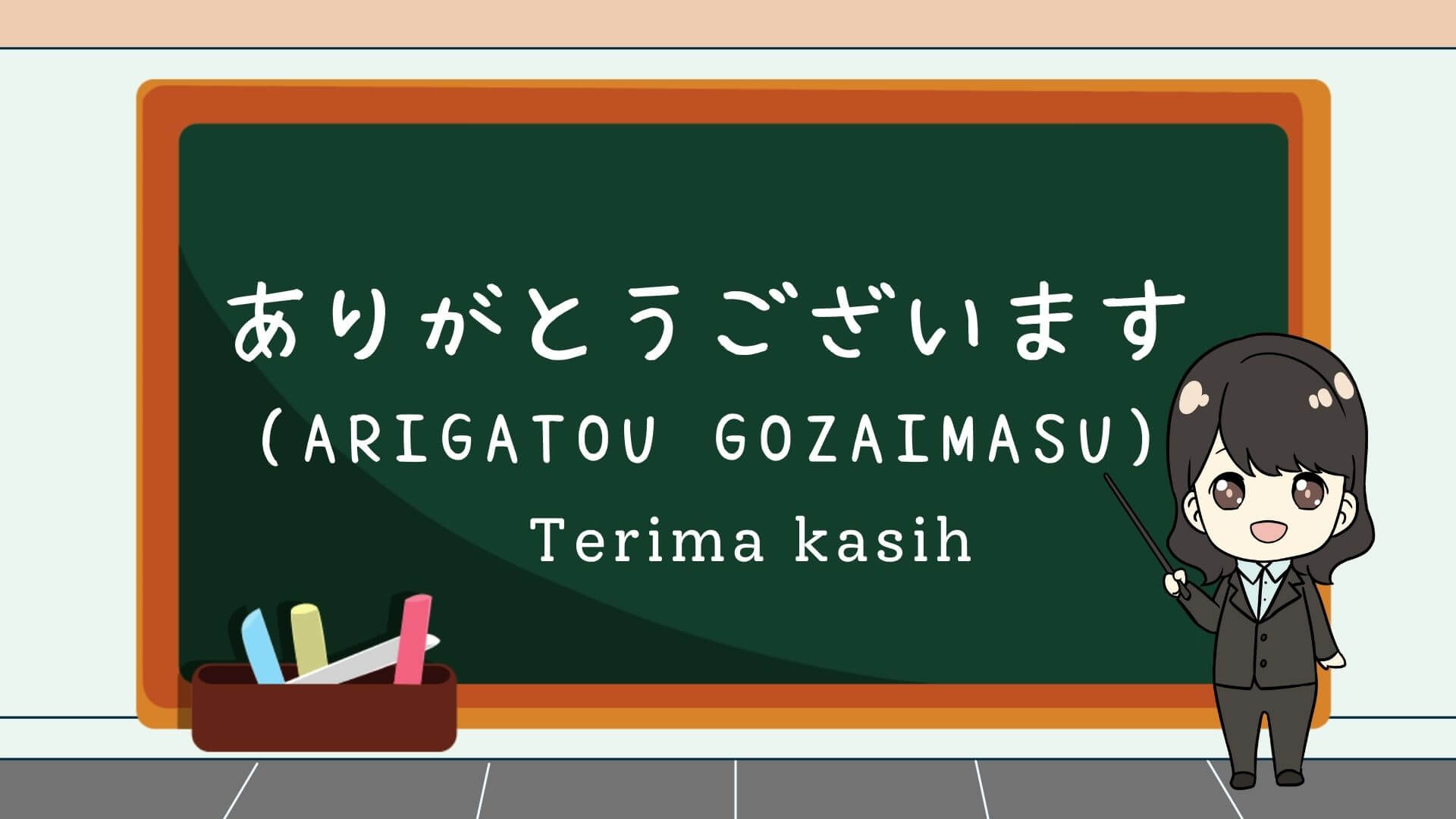
Arigatou gozaimasu (Terima Kasih) Belajar Bahasa Jepang Kepo Jepang
The full form is ありがとうございます (arigatō gozaimasu). May also or alternatively be preceded by intensifier どうも (dōmo, "very"), 大変 (taihen, "very") or 本当に (hontō ni, "really"). Expressions of thanks are given below in rough order of casual to polite. It can be preceded by くれて ("kurete") to.

Is it Domo arigato or Arigato gozaimasu? Find out in our quick guide to must know Japanese
Arigato gozaimasu (sometimes transcribed in "Arigatou gozaimasu") is a more polite way of saying "Arigato". This is the most common form of politeness when you talk to someone who has a higher professional or social status than yours. Domo arigato gozaimasu, a formal thank you very much. どうもありがとうございます。 Domo.

Thank You In Japanese Arigato Gozaimashita
Domo arigato (bisa juga disebut "Doumo arigatou") adalah sebuah cara untuk mengatakan "Terima kasih banyak" dalam bahasa Jepang. Ketika kata Domo dan Arigato digabung menjadi satu, maka ungkapan tersebut berarti bahwa kamu benar-benar ingin mengucapkan terima kasih yang sebesar-besarnya kepada orang yang membantu kamu.

How To Pronounce Arigatou Gozaimasu YouTube
Updated on September 12, 2017. If you are in Japan, you will probably hear the word arigatou (ありがとう) used on a regular basis. It is an informal way of saying "thank you." But it can also be used in conjunction with other words to say "thank you" in Japanese in more formal settings, such as an office or a shop or anywhere where manners.

THANK YOU in Japanese arigatou gozaimasu vs arigatou gozaimashita YouTube
4 Ways to Say Thank You in Japanese. The word " arigatou " can be used in different ways depending on the formality of the situation. Starting from the most casual form: Doumo (どうも) Arigatou (ありがとう) Arigatou gozaimasu (ありがとうございます) Doumo arigatou gozaimasu (どうもありがとうございます) The term.
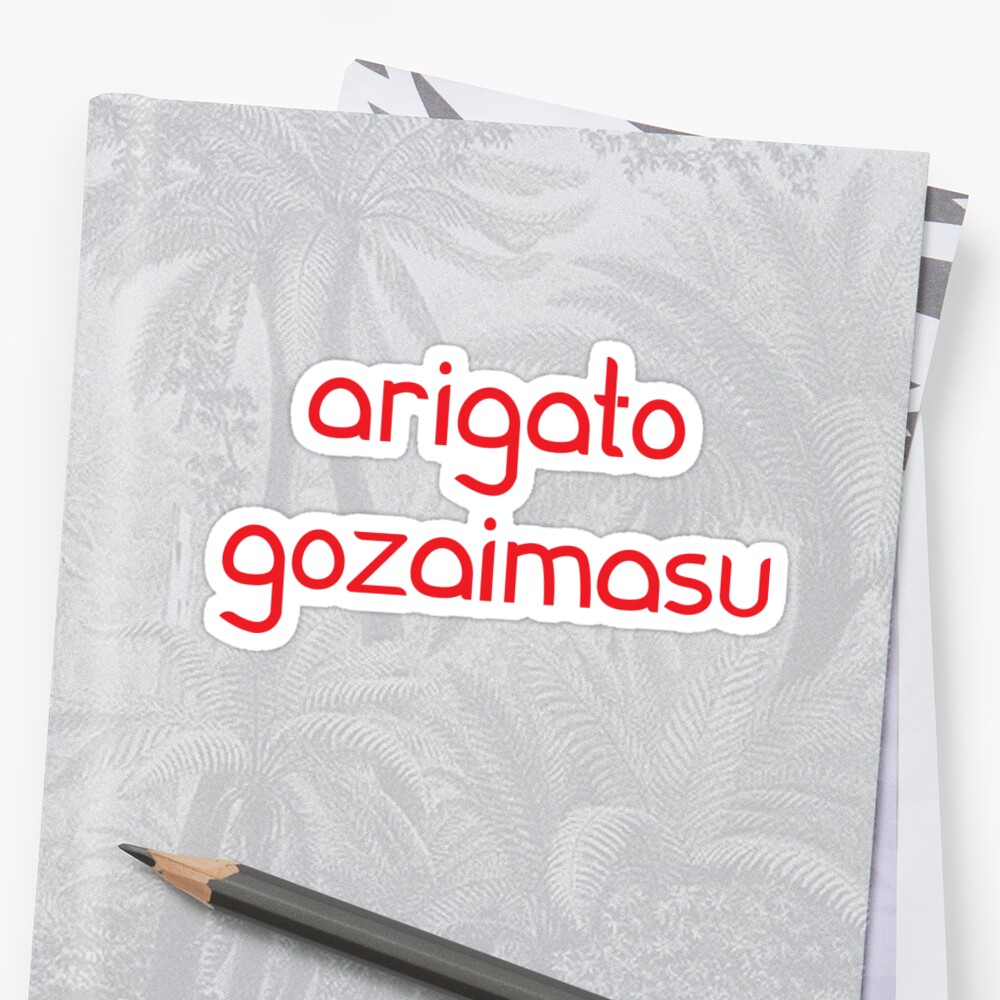
"Arigato Gozaimasu" Sticker by ChrisR777 Redbubble
Arti Kata "Arigatou gozaimasu". Pasti banyak orang yang tahu bahasa Jepang yang satu ini. Arigatou gozaimasu yang digunakan untuk mengungkapkan rasa "terima kasih" biasa dipakai dalam situasi umum yang kebanyakan bersifat formal. Umumnya digunakan ketika kalian ingin mengungkapkan "terima kasih" kepada orang yang belum kalian kenal.
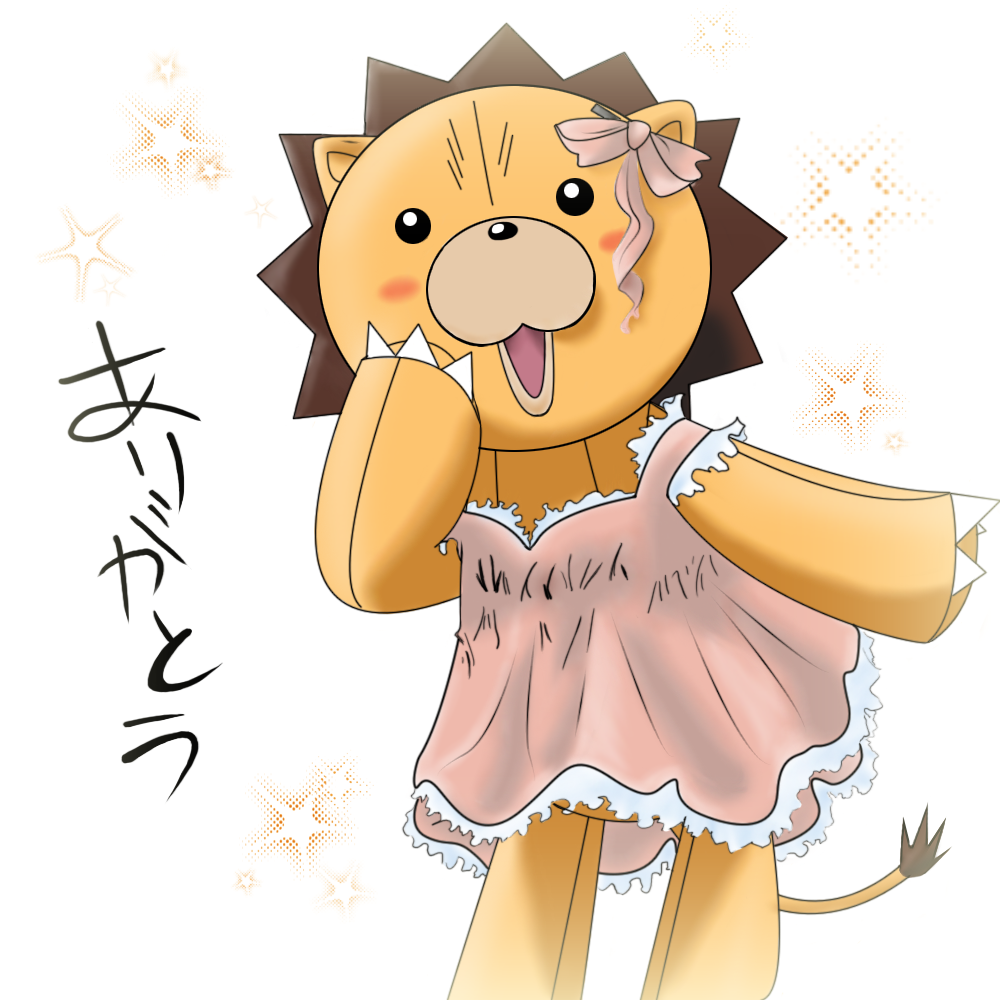
.Arigatou Gozaimasu. by Sugarlesschocolate on DeviantArt
You can't say gozaimasu on its own, it wouldn't mean much of anything, but arigatou is a nice quick thanks for casual situations, and arigatou gozaimasu is an excellent way to politely express your thanks. 5. Hontoni arigatou gozaimasu - 本当に ありがとう ございます. Pronunciation: hohn-toh-nee ah-ree-gah-toh goh-zah-ee-mahs.
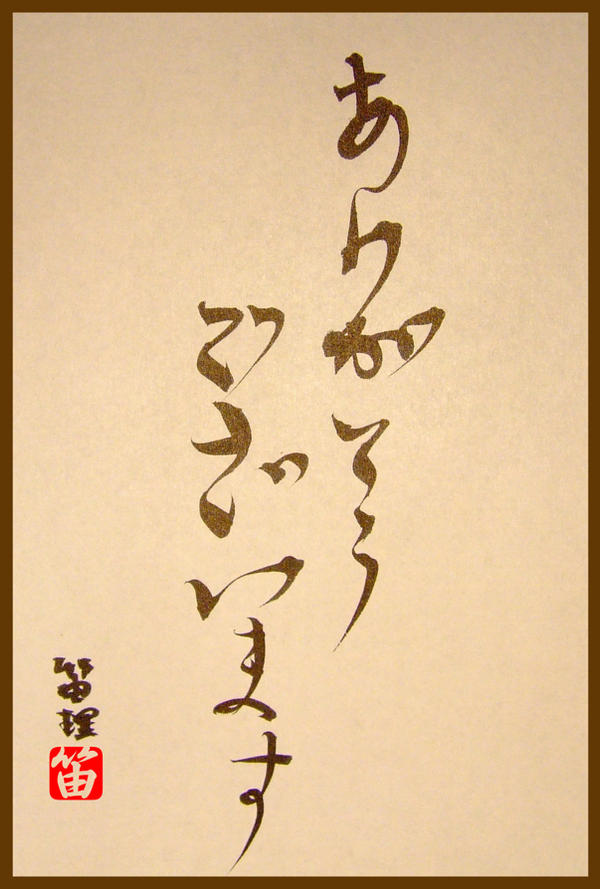
Arigatou Gozaimasu by Ferikun on DeviantArt
Pengertian Arigato. Secara bahasa arti Arigatou adalah Terima Kasih. Arigatou adalah ucapan terima kasih dalam Bahasa Jepang yang tingkatannya non formal (biasanya digunakan kepada teman atau orang yang lebih muda) Sedangkan ucapan terima kasih formal yang diucapkan kepada orang tua atau atasan biasanya "Arigatou Gozaimasu"
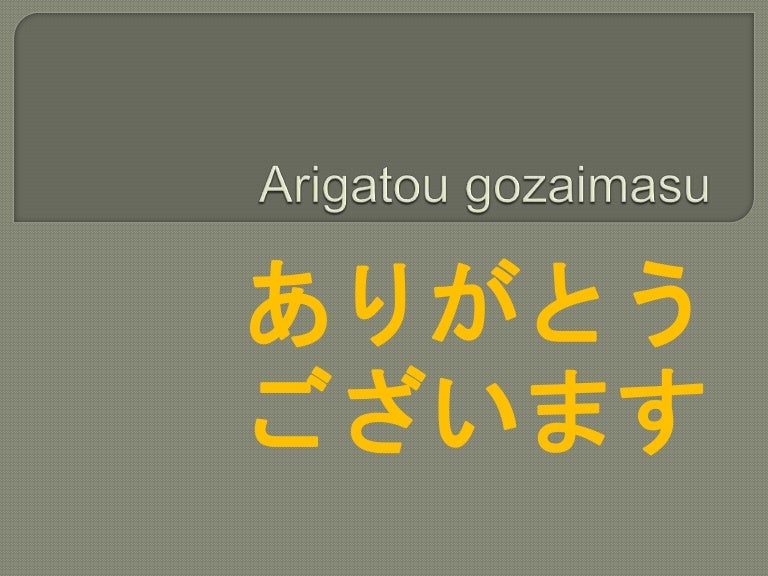
Arigatou gozaimasu
1. Dou Itashimashite - You're Welcome (formal) This is the standard reply that Japanese textbooks teach you to use when someone says "Arigato" or "Arigato gozaimasu". Dou itashimashite (どう致しまして or どういたしまして) means " You are welcome ", " Don't mention it ", " Not at all ", or " My pleasure.

Arigatou Gozaimasu Saudação Linda Borda Branca PNG , Arigatou Gozaimasu, Saudações, Fofa Imagem
Arigato Gozaimasu and Arigato Gozaimashita are polite ways to say Arigatou, and both translate to thank you very much. But these phrases are slightly different in usage. Arigato Gozaimasu (ありがとうございます) Arigato Gozaimasu (pronunciation) is a present tense used right after something you'll appreciate has been done. For example,

Arigatou Gozaimasu PNG, Vector, PSD, and Clipart With Transparent Background for Free Download
arigatō gozaimasu. Rōmaji transcription of ありがとうございます. : This page was last edited on 8 September 2013, at 08:20. Definitions and other text are available under the Creative Commons Attribution-ShareAlike License; additional terms may apply.
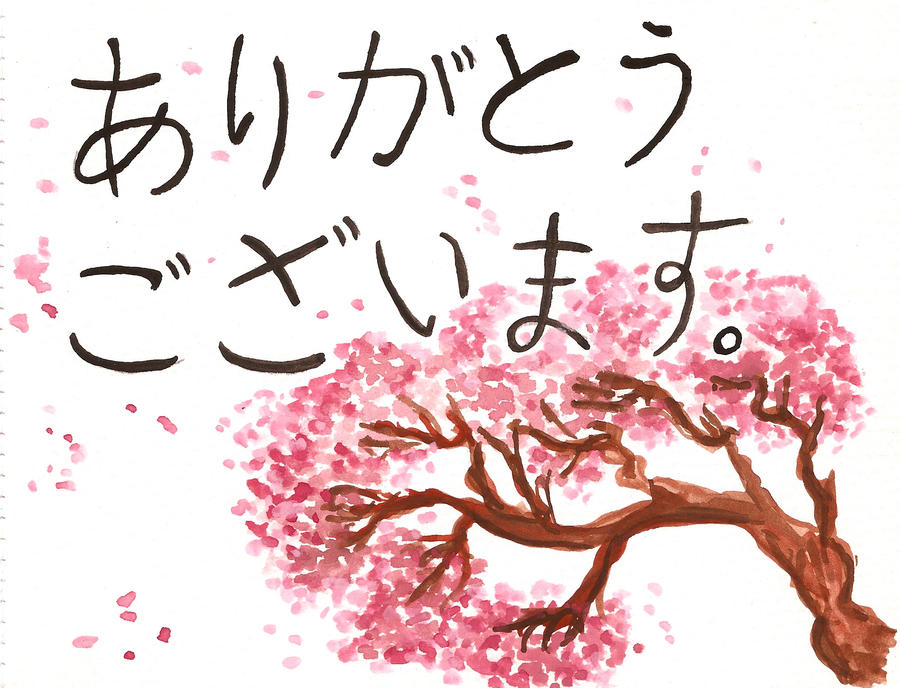
Arigato gozaimasu by emmaprew on DeviantArt
You say arigatou gozaimashita (ありがとうございました) when someone has already helped or done a favor. For example, if someone is offering a hand to carry your luggage, you will use the present tense. 荷物を持ってくれてありがとうございます。. Nimotsu o motte kurete arigatou gozaimasu. Thank you for carrying my.

Sketch 2 Arigatou gozaimasu from Horikoshi! [COLOURED] BokuNoHeroAcademia
The Japanese word " arigato " (ありがとう) means " thank you " or " thanks ". It is the most basic and one of the most commonly used expressions to say " thank you " in Japanese. Personally, I prefer to think of it and translate it as " thanks " instead of "thank you" since it is the slightly more casual version.